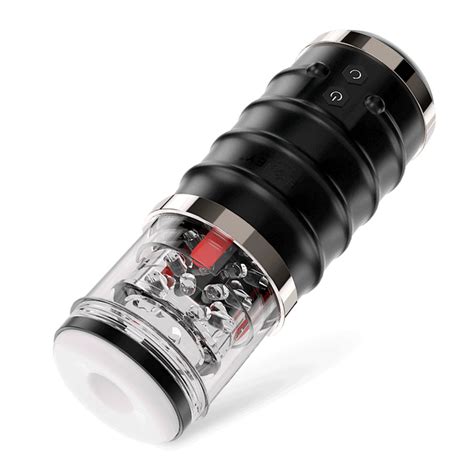Discover the Versatility of a Stroker Engine
The term "stroker" might conjure images of souped-up muscle cars and drag racing, but the reality is far more nuanced. A stroker engine, characterized by its longer stroke crankshaft, offers a surprising level of versatility across various applications. This isn't just about raw power; it's about tailoring engine performance to specific needs, whether it's maximizing torque for towing, boosting horsepower for speed, or optimizing fuel efficiency for everyday driving. Let's delve into the world of stroker engines and explore their multifaceted capabilities.
What Exactly is a Stroker Engine?
At its core, a stroker engine is built around a crankshaft with a longer stroke than the original factory specification. The "stroke" refers to the distance the piston travels up and down within the cylinder. A longer stroke means the piston travels a greater distance, increasing the engine's displacement – the total volume of all cylinders. This increase in displacement directly impacts the engine's torque and horsepower output. However, simply lengthening the stroke isn't a simple modification; it requires careful consideration of other engine components to maintain optimal performance and reliability. This often involves modifying connecting rods, pistons, and potentially the engine block itself.
How Does a Longer Stroke Affect Engine Performance?
The increased displacement from a longer stroke directly translates to several key performance changes:
-
Increased Torque: This is arguably the most significant benefit of a stroker engine. The longer stroke produces more torque at lower RPMs, making it ideal for applications requiring pulling power, such as towing heavy loads or accelerating from a standstill.
-
Increased Horsepower (Potentially): While torque is primarily boosted, horsepower can also increase, especially at lower RPM ranges. However, the increase in horsepower isn't always proportional to the increase in torque. Peak horsepower might shift to a lower RPM, depending on other engine modifications.
-
Changes in RPM Range: The engine's power band might shift towards lower RPMs. This means you'll experience peak torque and horsepower at lower engine speeds compared to a standard engine.
-
Fuel Efficiency (Potentially): While not always guaranteed, a well-designed stroker engine can actually improve fuel efficiency under certain operating conditions, particularly at lower RPMs where the engine operates more efficiently. However, this largely depends on the overall engine design and tuning.
What are the Applications of a Stroker Engine?
The versatility of a stroker engine makes it suitable for a range of applications:
-
Muscle Cars and Performance Vehicles: The increased torque and horsepower make stroker engines a popular choice for boosting the performance of classic muscle cars and modern performance vehicles.
-
Off-Road Vehicles: The added torque is invaluable for navigating challenging terrains, offering superior climbing ability and traction.
-
Towing Vehicles: The significant increase in low-end torque is perfect for towing heavy trailers or caravans, providing smoother and more powerful towing capabilities.
-
Marine Engines: In boats, the increased torque translates to better acceleration and pulling power, making stroker engines suitable for various watercraft.
-
Agricultural Machinery: The robust torque and reliability of stroker engines make them a suitable choice for demanding agricultural applications requiring powerful and consistent performance.
Is a Stroker Engine Right for You?
While the benefits are significant, it's crucial to weigh the pros and cons before committing to a stroker engine build. Consider these factors:
-
Cost: Modifying an engine to create a stroker build is often significantly more expensive than other performance modifications.
-
Maintenance: The increased stress on engine components may require more frequent maintenance and potentially shorter lifespan depending on the quality of the build and materials.
-
Tuning: Proper tuning is critical for optimal performance and reliability. A poorly tuned stroker engine can be less efficient and prone to damage.
-
Application: The suitability of a stroker engine depends heavily on its intended use. It's not always the best option for every vehicle or application.
Frequently Asked Questions
How much does it cost to build a stroker engine?
The cost varies greatly depending on the engine, the level of modification, and the parts used. It can range from a few thousand dollars to tens of thousands of dollars for high-performance builds.
What are the potential downsides of a stroker engine?
Potential downsides include increased wear and tear on engine components, higher maintenance costs, and a potentially shorter lifespan if not properly built and maintained.
Can a stroker engine improve fuel economy?
In some cases, yes, particularly at lower RPMs where the engine is operating within its most efficient range. However, this isn't always guaranteed and depends on other factors.
What type of vehicles are stroker engines best suited for?
Stroker engines are ideal for vehicles where torque is prioritized, such as towing vehicles, off-road vehicles, and performance vehicles where low-end power is crucial.
By carefully considering these factors and understanding the specific needs of your application, you can determine if a stroker engine is the right choice to enhance your vehicle's performance and versatility. Remember, proper planning, quality components, and professional installation are key to achieving optimal results and ensuring longevity.

